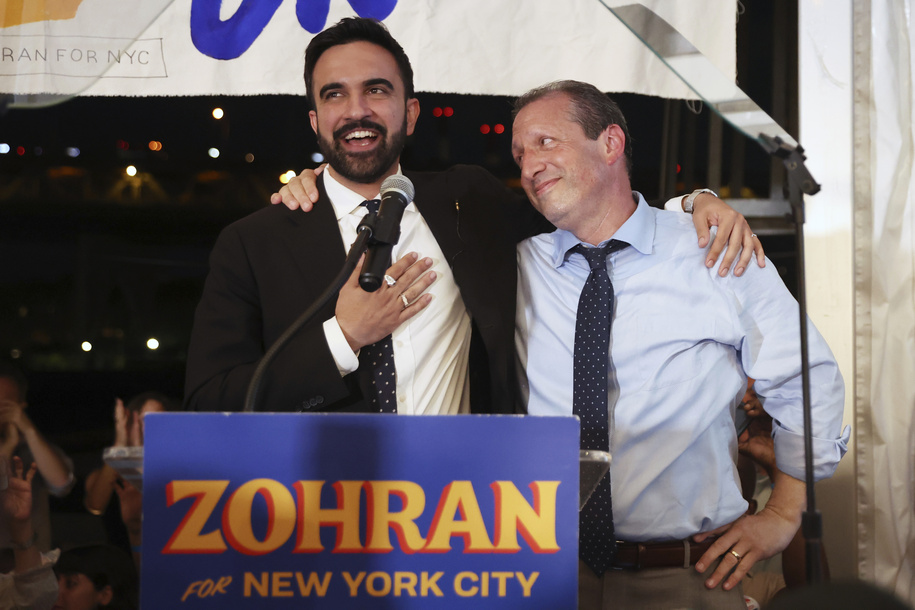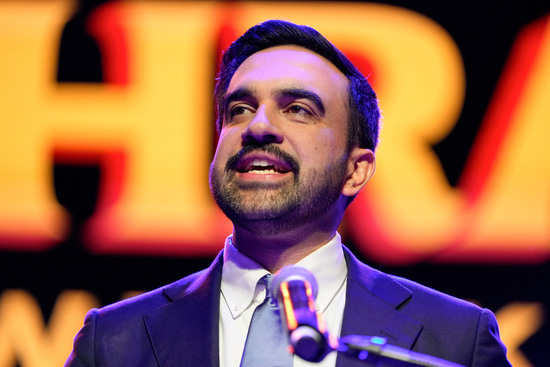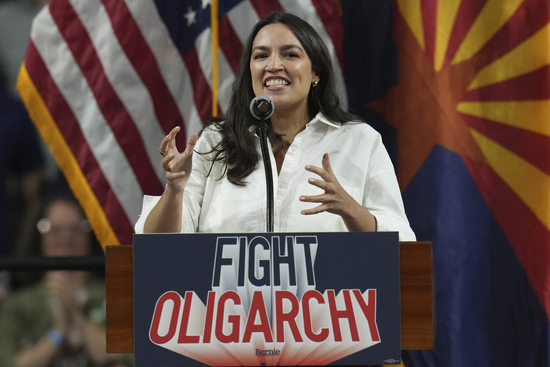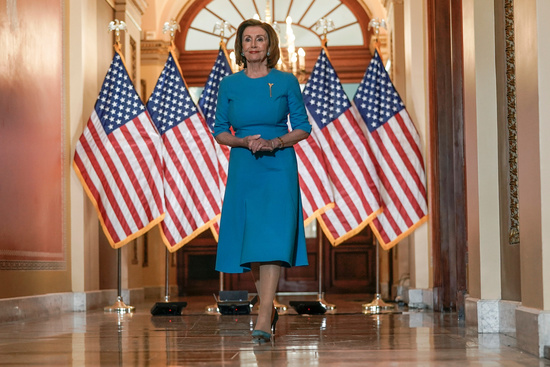
House Democrats are bracing for a surge of progressive primary challenges that could scramble the party’s internal hierarchy—and the spark behind it all is a likely one: New York City Mayor-elect Zohran Mamdani.
Something on the left has shifted. From municipal offices to congressional districts, activists are testing whether the anti-establishment energy that helped elect Mamdani can be scaled up to Washington.

Rep. Mark Pocan of Wisconsin, former Progressive Caucus co-chair, initially guessed that “at least 30%” of House Democrats would face primary challenges this cycle. Speaking to Axios this week, he increased that estimate.
“That number might turn out to be even higher,” he said. “You can just tell. It’s the year. People’s hair is on fire; they just feel like they’ve got to do something. People are pissed, they’re sad, they’re concerned.”
Nowhere is the jolt more attention-grabbing than in Brooklyn, where House Minority Leader Hakeem Jeffries suddenly has a potential challenger. New York City Council member Chi Ossé filed paperwork Monday—an underdog bid that nonetheless ricocheted through political circles because of his past ties to Mamdani.
Yet Mamdani himself is urging restraint. At a Democratic Socialists of America meeting Wednesday night, he urged members not to endorse Ossé, underscoring divisions inside the progressive universe.
“The choice is not whether to vote for Chi or Hakeem at the ballot box; the choice is how to spend the next year. Do we want to spend it defending caricatures of our movement, or do we want to spend it fulfilling the agenda at the heart of that very same movement?” Mamdani reportedly said.
Democratic Rep. Alexandria Ocasio-Cortez of New York, herself a veteran insurgent who toppled incumbent Joe Crowley in 2018, offered a similar warning.
“I certainly don’t think a primary challenge to the leader is a good thing right now,” she said.
What these comments reveal is less hesitation than calibration. For many on the left, Mamdani’s win wasn’t just about ideology; it was about method.

An insistence on grassroots accountability and genuine bottom-up organizing has become central to his political identity. To progressives, that approach feels like a necessary correction after years of insider-driven party management that helped produce the Democratic wipeouts of 2024.
Even if Ossé ultimately falls short, he is far from alone. A wave of insurgent candidates is emerging. Chuck Park, a former New York Economic Development Corporation staffer, launched a challenge against Rep. Grace Meng on Monday. And Michael Blake, a former state assembly member and Democratic National Committee vice chair, is taking on Rep. Ritchie Torres.
More possible bids are floating around Manhattan and Brooklyn—territory where Mamdani’s victory map now functions as a kind of strategic blueprint. Names like Comptroller Brad Lander and Council member Alexa Avilés are being discussed as potential rivals to Rep. Dan Goldman, whose district Mamdani carried with ease.
“Brad Lander will win,” outgoing Rep. Jerry Nadler told Axios.
He later dialed back the certainty: “I really don’t know who’s going to win.”
The progressive insurgency is national in scope. Reps. Shri Thanedar of Michigan, Wesley Bell of Missouri, and Jimmy Gomez of California are facing challengers backed by Justice Democrats, the same left-wing group that helped unseat incumbents during the last wave of progressive upsets.
Older Democrats are also under pressure. Reps. Ed Case of Hawaii, Steve Cohen of Tennessee, and David Scott of Georgia face younger rivals questioning both their ideology and their age.
Primary challenges have also emerged against Reps. Nancy Pelosi of California—who is retiring—and Jan Schakowsky of Illinois, with critics arguing that senior party leaders failed to confront Trump aggressively enough or offer a compelling vision for the future.

Speaking anonymously to Axios, one House Democrat dubbed the pattern “the Mamdani revolution,” while another stressed that, even if many insurgents fall short, ignoring the momentum would be a mistake.
“Anybody who doesn’t take the dynamic seriously does so at their peril. It’s going to be a bloodbath in comparison to a default year,” they said.
Justice Democrats confirmed that they plan to build on Mamdani’s victory—a sign that more progressive campaigns are coming.
“You can expect more news on that in the coming weeks,” a spokesperson told Axios.
What’s emerging is a larger confrontation over how power is won and wielded inside the Democratic Party. For years, the party relied on a top-down model that left many voters alienated or unheard. Now those same voters are speaking in the only language politics reliably understands: competitive primaries.
A new generation of candidates—hungry, networked, and unapologetically ambitious—is forcing Democrats to reckon with a future that won’t wait for permission.






